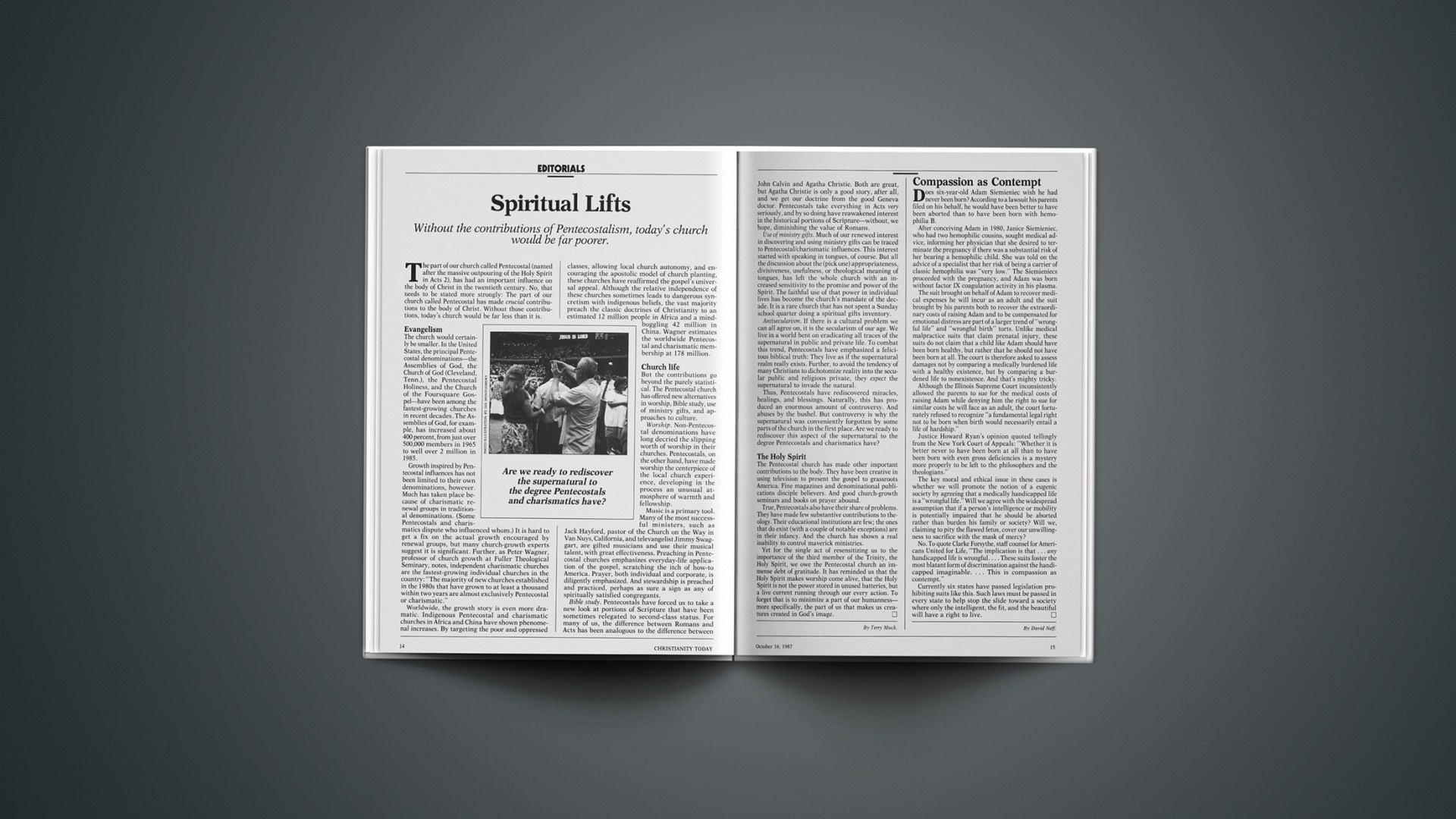Does six-year-old Adam Siemieniec wish he had never been born? According to a lawsuit his parents filed on his behalf, he would have been better to have been aborted than to have been born with hemophilia B.
After conceiving Adam in 1980, Janice Siemieniec, who had two hemophilic cousins, sought medical advice, informing her physician that she desired to terminate the pregnancy if there was a substantial risk of her bearing a hemophilic child. She was told on the advice of a specialist that her risk of being a carrier of classic hemophilia was “very low.” The Siemieniecs proceeded with the pregnancy, and Adam was born without factor IX coagulation activity in his plasma.
The suit brought on behalf of Adam to recover medical expenses he will incur as an adult and the suit brought by his parents both to recover the extraordinary costs of raising Adam and to be compensated for emotional distress are part of a larger trend of “wrongful life” and “wrongful birth” torts. Unlike medical malpractice suits that claim prenatal injury, these suits do not claim that a child like Adam should have been born healthy, but rather that he should not have been born at all. The court is therefore asked to assess damages not by comparing a medically burdened life with a healthy existence, but by comparing a burdened life to nonexistence. And that’s mighty tricky.
Although the Illinois Supreme Court inconsistently allowed the parents to sue for the medical costs of raising Adam while denying him the right to sue for similar costs he will face as an adult, the court fortunately refused to recognize “a fundamental legal right not to be born when birth would necessarily entail a life of hardship.”
Justice Howard Ryan’s opinion quoted tellingly from the New York Court of Appeals: “Whether it is better never to have been born at all than to have been born with even gross deficiencies is a mystery more properly to be left to the philosophers and the theologians.”
The key moral and ethical issue in these cases is whether we will promote the notion of a eugenic society by agreeing that a medically handicapped life is a “wrongful life.” Will we agree with the widespread assumption that if a person’s intelligence or mobility is potentially impaired that he should be aborted rather than burden his family or society? Will we, claiming to pity the flawed fetus, cover our unwillingness to sacrifice with the mask of mercy?
No. To quote Clarke Forsythe, staff counsel for Americans United for Life, “The implication is that … any handicapped life is wrongful.… These suits foster the most blatant form of discrimination against the handicapped imaginable.… This is compassion as contempt.”
Currently six states have passed legislation prohibiting suits like this. Such laws must be passed in every state to help stop the slide toward a society where only the intelligent, the fit, and the beautiful will have a right to live.
By David Neff.










